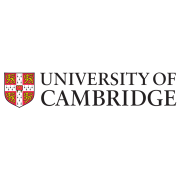Research Assistant in Photophysics of Molecular - Cambridge, United Kingdom - University of Cambridge
Description
Applications are invited for a Research Assistant position to work on a project to explore the electronic and optical properties of radical (spin 1/2)-based organic semiconductors, supported by the European Research Council.
You will join the Department of Physics, working under the supervision of Prof.Sir Richard Friend, working closely with Dr Akshay Rao in the Department of Physics and Dr Hugo Bronstein in the Department of Chemistry.
One of the leading academic groups in the field of organic and hybrid electronics, our research programme is built on a broad scientific approach aiming to understand the electronic properties of novel semiconductors, but also aiming to understand in-depth the physical processes that govern the performance of organic, nanocrystal and hybrid organic-nanocrystal electronic devices, such as light emitting diodes and photovoltaics.
We have recently reported efficient light-emitting diodes using radical (spin 1/2)-based organic semiconductor for emission.These materials operate entirely within the spin-doublet manifold, avoiding non-emissive spin configurations based on spin-triplets that compromise the operation of conventional organic LEDs and solar cells.
This opens a new domain for the operation and design of organic semiconductors materials and devices, one that is different from what has been possible till now.
This project will explore and develop the fundamental electronic, optical and spin properties of this new class of radical-based organic semiconductor materials (ROSCs) and, specifically, to explore novel high spin photoexcited states that we have recently observed.
You should be studying towards a PhD in Chemistry, Physics or a related area, and have a strong background in the photophysics and spin physics of organic semiconductors.
The ability to work well in a team will be crucial as projects will be highly collaborative, involving universities and industrial partners around the world.
Experience with photophysical measurements, magneto-optical measurements and electron spin resonance is essential. The position will be available to start from May 2024.Fixed-term: The funds for this post are available until 30 September 2025 in the first instance.
The University has a responsibility to ensure that all employees are eligible to live and work in the UK.
More jobs from University of Cambridge
-

Administrative Assistant
Cambridge, United Kingdom - 3 weeks ago
-

Admissions and Data Services Administrator
Cambridge, United Kingdom - 2 weeks ago
-

EPSRC iCASE Studentship
Cambridge, United Kingdom - 3 weeks ago
-

Research Associate
Cambridge, United Kingdom - 3 weeks ago
-

Finance Coordinator
Cambridge, United Kingdom - 1 week ago
-

Research Assistant/associate in Lithographic
Cambridge, United Kingdom - 3 days ago
